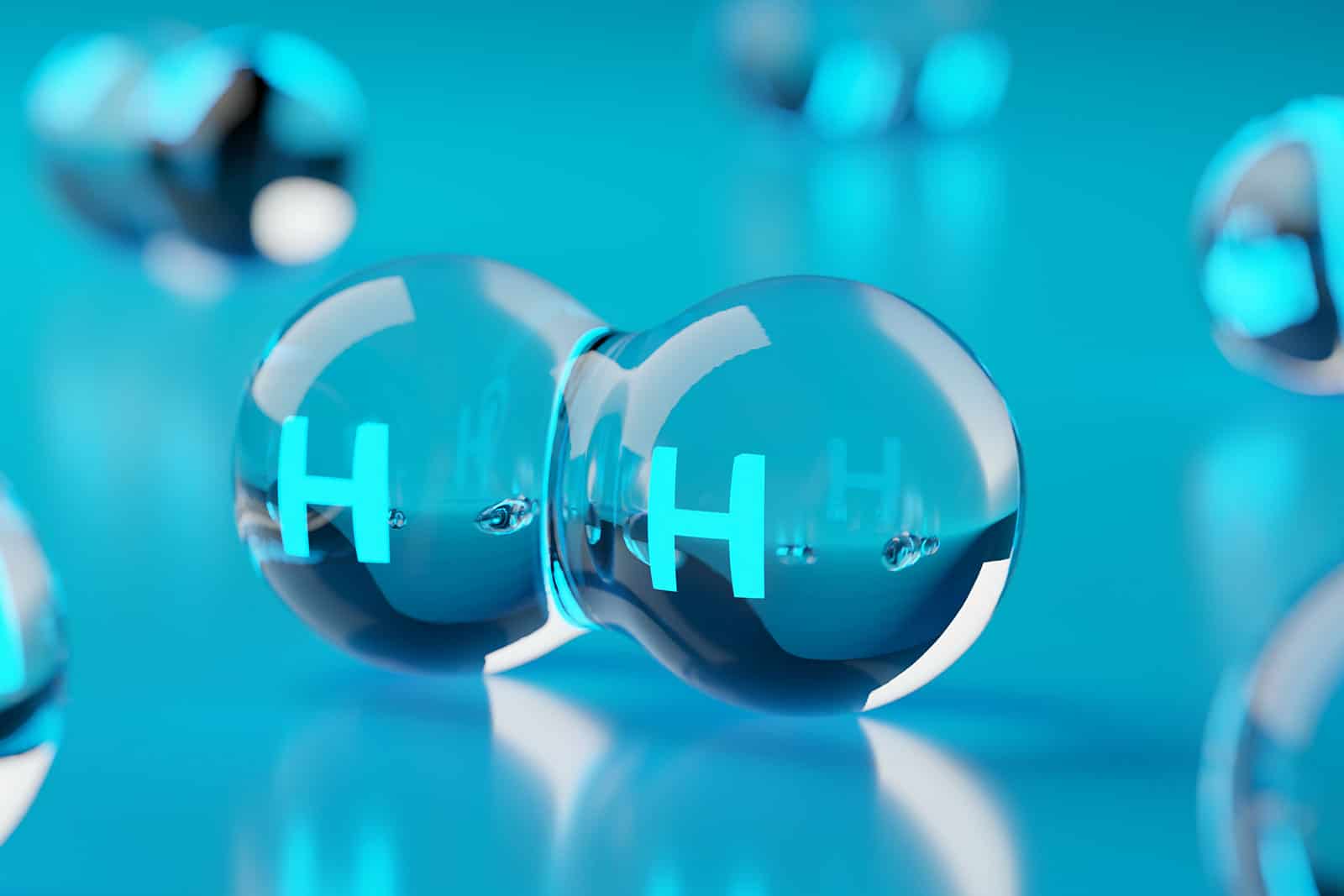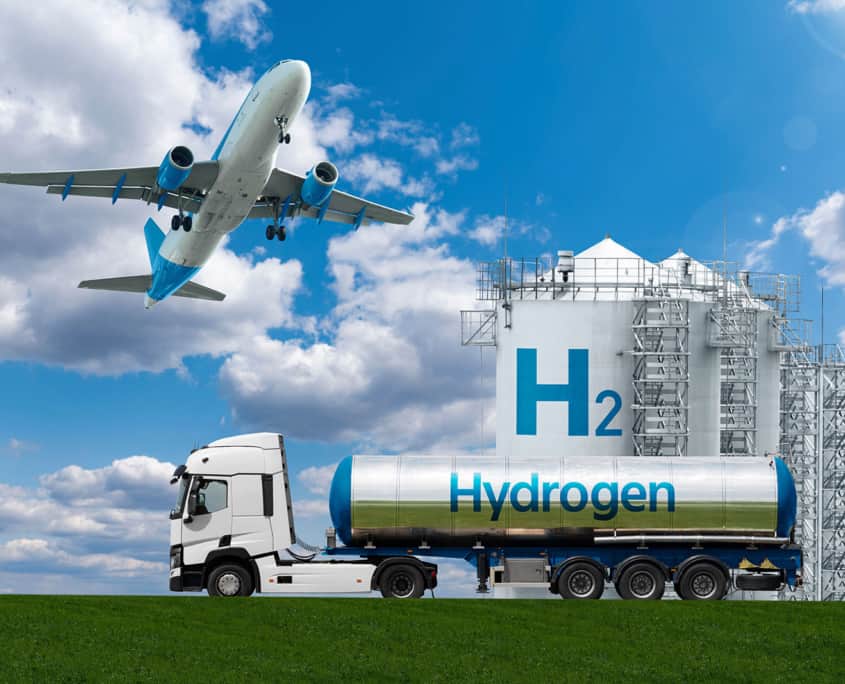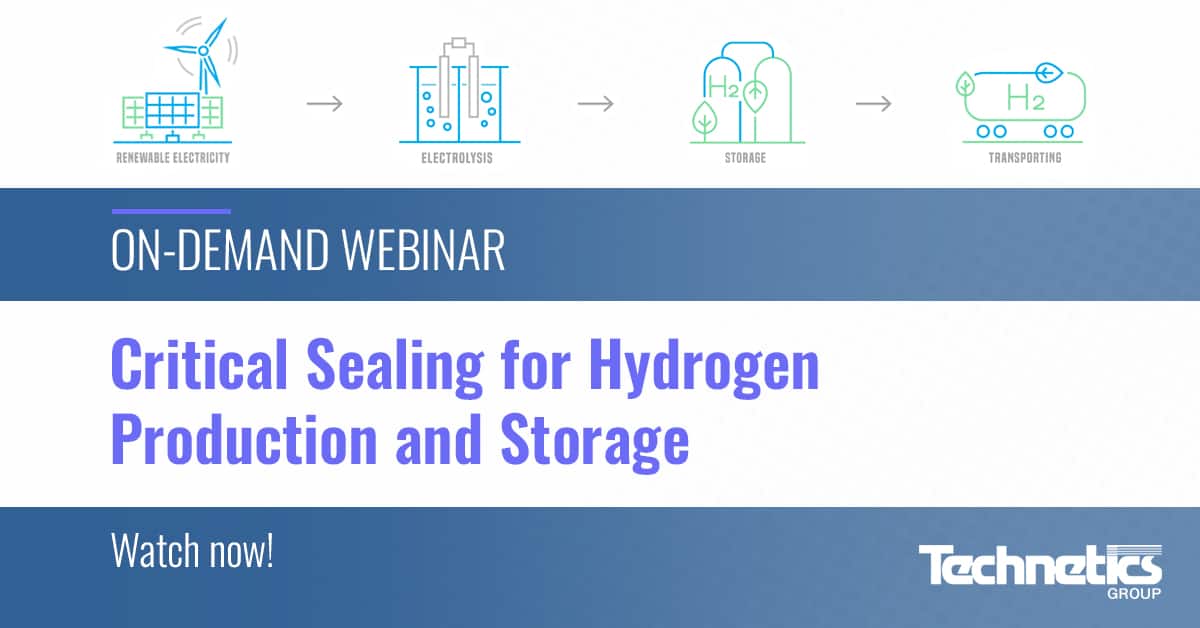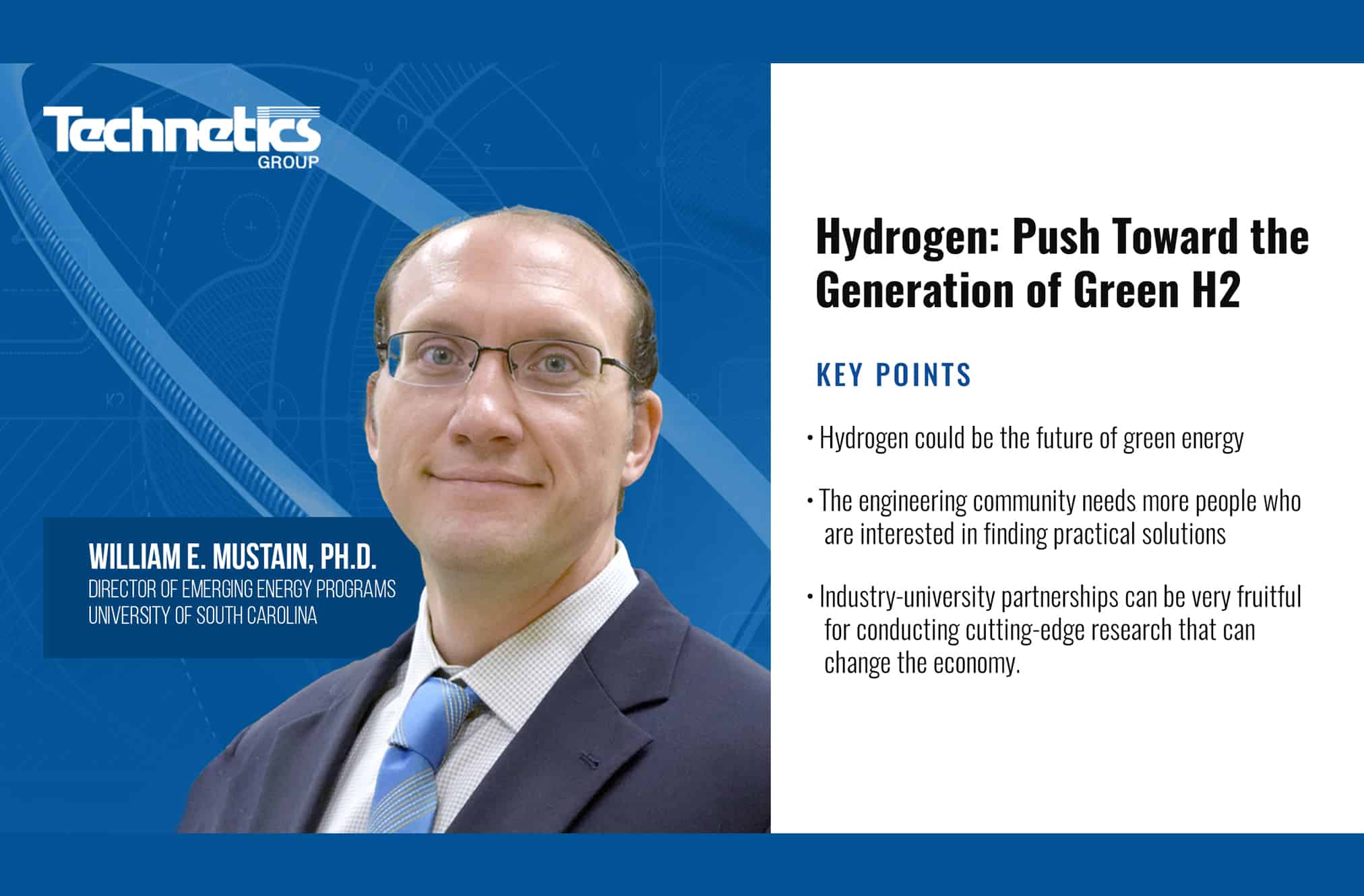Hydrogen Production: The Challenges and Practical Applications
As the world shifts its focus to decarbonization initiatives, research shows responsible leaders will pour more technology and infrastructure into the hydrogen production economy to provide clean, carbon-free energy storage.
What is Green Hydrogen, and what makes it more sustainable?
Green hydrogen production is accomplished by electrolysis using a renewable source of energy such as wind power or solar power. Hydrogen obtained without carbon emission can be used in fuel cells to produce electricity or mixed with natural gas for combustion, allowing a reduction in CO2 emissions.
Green Hydrogen Production Methods in Use
Some are already capitalizing on the new trend, such as SoCalGas, which has already begun repurposing its distribution lines to supply green Hydrogen, coined Angeles Link. However, hydrogen production and handling challenges are the main barriers to entry.
Challenges of Hydrogen Production and Handling
While an excellent clean-energy alternative, the production and consumption of Hydrogen, in particular green Hydrogen, faces numerous technical and cost challenges in areas such as:
- Electrolysis
- Fuel cells
- Turbines
- Transport and storage
Hydrogen requires storage under high pressure, safety and purity. Reliable, cost-effective, and safe systems are needed to satisfy these challenges.
The Importance of Reliable Critical Seals
Investing in critical seals is a key component of creating a hydrogen solution. Seals are crucial because they reduce the impact of technical issues, like wear or damage (particularly embrittlement of metals) and high-density storage and transport. The proper seals can help reduce the cost of production, reduce the risks of leakage, and improve overall efficiency.
Partnering with a veteran sealing provider is essential to accomplishing hydrogen goals. At Technetics, we research, design and test our sealing systems to improve efficiency, reliability, and safety. Increasing the lifetime of the components is critical to reducing the cost of hydrogen production, which is a crucial factor in the future wide use of Hydrogen. Utilizing our solutions is one way of ensuring these goals are met.
We offer a wide range of solutions, such as metal seals, elastomer seals, and mechanical seals, which are found in a variety of equipment, such as:
- Pumps
- Compressors
- Valves
- Turbines
- Reactors
- Exchangers
- Cryogenic systems
- Ultra-high vacuum (UHV) equipment
So, why trust Technetics with your hydrogen solution needs? We’re glad you asked…
Technetics: Your Hydrogen Seal Solution Expert
While most are just now jumping on the bandwagon, Technetics is no stranger to the hydrogen arena. As early as 2006, we worked on hydrogen applications in our Maestral laboratory, a joint venture with the CEA Research Institute in France. First, working on proton exchange membrane fuel cells to optimize the stacks, we have developed sealing systems for high-temperature electrolysis and now industrialized or been close to the industrialization of our processes and sealing systems.
Our experience includes working in the nuclear, aerospace, semiconductor, and scientific research markets. This diversification in expertise has allowed us to hone designing, testing, and analyzing hydrogen systems, even in severe conditions, such as cryogenic (liquefied LNG and LH2) and high temperatures, and high pressure.
Through these years of research, we have gained much knowledge on hydrogen behavior with different materials, which allows us to optimize systems. With extensive research and development over materials characterization and aging tests, Technetics engineering can anticipate the interactions between the elements to be sealed and the materials of the seals.
View our on-demand Hydrogen webinar to learn more.
Additionally, we have even supported the development of cutting-edge technologies:
- Solid oxide fuel cells: optimization of the mechanical behavior of the stacks
- High-temperature electrolysis: optimization of the stacks’ connections
- High-temperature water steam electrolysis, including reversible processes: stacks sealing
- Proton exchange membrane fuel cells: bipolar plate sealing and overall optimization
We find the most suitable sealing configuration to ensure the best lifetime and highest safety for our customers’ custom solutions. A company dedicated to research and development, you can be assured your seal solution is made by the industry’s leading subject matter experts with the most modern technology available.
Ready to get started? Contact us today to get started with your hydrogen seal solutions.






